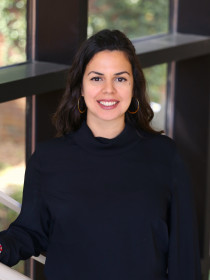
Lara Perez-Felkner
Connect with Lara
About Lara
Perez-Felkner's research uses developmental and sociological perspectives to examine how social contexts influence youths' college and career outcomes. She focuses on the mechanisms that shape entry into and persistence in institutions and fields in which they have traditionally been underrepresented. She investigates racial-ethnic, gender, and socioeconomic disparities in post-secondary educational attainment and entry to scientific career fields. She is a Student Experience Research Network (SERN) Mid-Career Fellow, Institute in Critical Quantitative, Computational, & Mixed Methodologies (ICQCM) NSF Scholar, and WT Grant Foundation FAMU-FSU Institutional Challenge Mid-Career Fellow.
Contributions
Transforming Opportunity to Support STEM Success for All
No Jargon Podcast
In the News
Publications
Uses the most recent nationally representative U.S. cohort data on secondary school students and assesses the effects of students’ perceived mathematical and scientific abilities and interests on their STEM major choices. Perceives that math/science ability better predicts STEM major cluster choice as compared to interest, especially for men.
Elaborates on the history and strengths of postsecondary STEM education in Puerto Rico, current research on STEM education in Puerto Rico, and current research gaps. Offers several suggestions for how institutions may leverage existing programs to further P.R. students' STEM training.
Mentions future postsecondary faculty, researchers, scholars, and administrators are not insulated from hunger, debt, financial anxiety, nor the need for a secure place to sleep.
Mentions merging two sources of national data, we leverage provincial census figures and institutional administrative data to estimate women's enrollment share in STEM and related fields (i.e., accounting, information technology, and health). Discusses potential explanations and implications for gender and inequality in higher education.
Uses nationally representative U.S. longitudinal data and measures gender and racial/ethnic variation in secondary students’ orientation towards mathematics difficulty. Shows notably black women have higher gains in predicted probability to declare a mathematics-intensive major than all other women, given their mathematics difficulty orientations.
Describes the legal and political history of affirmative action, the social justice and then diversity rationales, and the importance of state policies and institutions. Focuses on the responses of three highly diverse US states – Texas, California, and Florida – to postsecondary affirmative action bans affecting their public flagship institutions.
Summarizes the results of a three-year mixed methods study examining variation in students’ educational pathways. Investigates that college-going among a predominantly low-income, underrepresented minority student population, detailed analysis shows distinctions in how students perceive relationships with school faculty and peers, which can serve as a mechanism to sustain their ambitions through the obstacles they encounter in high school and expect in college.